This article was medically reviewed by Pradeep Adatrow, DDS, MS. Dr. Pradeep Adatrow is the only board certified Dentist, Periodontist, and Prosthodontist in the southern United States. With over 15 years of experience, Dr. Adatrow specializes in dental implants, TMJ treatments, periodontal plastic surgery, surgical and non-surgical periodontics, bone regeneration, laser treatments, and soft tissue and gum graft procedures. He received a BS in Epidemiology and Biostatistics from the University of Alabama and earned his Doctor of Dental Surgery (DDS) degree from the University of Tennessee College of Dentistry. Dr. Adatrow then completed a three-year postgraduate program in periodontics and implantology at Indiana University and went on to complete another three-year postdoctoral program in advanced prosthodontics from the University of Tennessee. He also serves as a full-time professor and the Director of Surgical Prosthodontics at the University of Tennessee. Dr. Adatrow received the Dean's Junior Faculty Award and the John Diggs Faculty Award, and he was inducted into the Deans Odontological Society. He is board certified by the American Board of Periodontology and is a Fellow of the prestigious International College of Dentistry – a feat that only 10,000 others worldwide can claim.
There are 21 references cited in this article, which can be found at the bottom of the page.
This article has been viewed 15,469 times.
If you are having pain in the temporomandibular joint (TMJ) area, you know how annoying it can be. Jaw pain, tenderness, immobility, and clicking can result from a variety of conditions, such as arthritis, jaw injury, or teeth grinding, though it can also arise with no known cause. If you have recurring TMJ pain, you can try to prevent it in the future by putting less stress on your jaw, wearing a night guard for teeth grinding and reducing stress in your life. Stress can make you grind your teeth more and add tension to your jaw. If you do develop pain again, talk to your doctor, but in the meantime, take a few steps to deal with it at home.
Steps
Using Your Jaw Less Frequently
-
1Cut your food into smaller pieces. Eating smaller chunks of food means your jaw doesn't have to work as hard to chew your food. The less workout your jaw gets, the less likely you are to develop a TMJ disorder.[1]
- Approach your plate like you're cutting food for a toddler. Cut it in small, very manageable bites.
-
2Opt for softer foods over harder foods. When given the choice, pick the soft option.[2] For instance, choose a snack like avocado, applesauce, or hummus with pita over snacks like an apple or pretzels or nuts. Choose ice cream over a hard cookie. Anything that makes you chew less reduces your likelihood of developing TMJ.[3]
- Similarly, pick scrambled eggs instead of sausage or chewy beefsteak, and rice or mashed potatoes over a crunchy snack like raw carrot sticks.
- In some cases, cooking your food longer can help, such as cooking carrot sticks until they are soft.
- Soup, oatmeal, smoothies, scrambled eggs, and other soft foods don't require you to do much chewing. Eating these foods for a few days can rest your jaw until it heals.
Advertisement -
3Skip chewing gum. Chewing gum requires your jaw to work more often than it needs to, which can make TMJ worse or even cause symptoms in the first place.[4] Plus, gum is sticky, making your jaw work harder to chew.[5]
- If you need a breath freshener, opt for a mint instead, and let it dissolve in your mouth.
-
4
Trying Night Guards
-
1Ask your dentist for a custom-made mouth guard for the best fit. A custom-made mouthguard is best because it will fit your mouth better than other options. However, it's the most expensive option.[8]
- These guards typically cost $200-$500 USD to make. Check to see if your dental insurance will cover part of the cost.
- Harder materials, like acrylic, cost more than softer materials. You'll need harder materials if you grind your teeth heavily.
-
2Try an at-home custom kit for a mid-range custom option. With this option, you buy an at-home kit and make an impression of your teeth. Then you mail the impression to a manufacturer, who will make a guard for you and mail it back.[9]
- These guards tend to cost $55-$250 USD.
-
3Pick a boil-and-bite option for a less expensive night guard. To use this mouth guard, you boil the guard first for a set period of time (check the box). Then, once it cools a little, you place it in your mouth and bite down. The guard forms around your teeth to make a pseudo-custom night guard.[10]
- These guards tend to run $15-$25 USD. They are bulkier than the more customizable options, so they may be less comfortable.
-
4Try a basic stock guard for the cheapest solution. These guards are what boxers and other sports players use to protect their teeth. However, they come pre-formed, so they are usually boxy and uncomfortable. Still, if you need a cheap solution, this may be the one for you.[11]
- These guards can even make breathing difficult.
- They run about $10-$15 USD.[12]
-
5Wear your guard at night to help prevent TMJ pain. In some cases, TMJ is caused by teeth grinding. Wearing a mouth guard can help prevent you from developing symptoms. Doctors aren't exactly sure why this helps to relieve pain, as you still grind into the guard. However, it does seem to provide relief for many people.[13]
-
6Relax your jaw before you go to sleep. Every night, spend a few minutes consciously relaxing your jaw, tongue, and mouth. To relax your jaw, let your mouth hang open or bring the tip of your tongue to the top of your mouth. Massaging your jaw and face muscles can also help.[14]
- If you do this, you may find that you are not clenching your teeth as much when you sleep.
Working on Relaxation Techniques
-
1Get in at least 30 minutes of exercise most days of the week. Exercise can help clear your mind, and it often lessens the intensity of emotion that you're feeling. Any kind of exercise you enjoy is fine, from swimming to walking.[15]
-
2Take action on things that are stressing you out. When you're feeling stressed or anxious about a situation, it's usually because nothing is resolved, and you can't decide what kind of action to take. Taking an action, even if it's not the perfect one, often relieves some stress.[16]
- For instance, if you're stressing over a family situation, sit your family down to discuss it. Try to come up with a solution together.
-
3Practice mindfulness in your daily interactions. Mindfulness is the act of being fully present in what you're doing. You savor each bite of your food, for instance, and you give yourself over to the moment when your favorite song comes on the radio. You take a moment to breathe in the cool morning air or appreciate the sunrise.[17]
- Being mindful helps with stress because it pulls you out of your head into your body. It forces you to feel instead of think.[18]
-
4Take time out each week to do the things you love. Whether you're an avid gardener, love to read, or enjoy cooking, block out time for those activities. When you do things you love, you enter a flow state where you lose track of time and leave your stress behind.[19]
- Make sure you're making time at least 2 to 3 days per week to do the things you love, even if it's just for a short period.
-
5Learn relaxation techniques to lower stress levels. Spending time relaxing each week is vital to lowering your stress levels. Try relaxing activities like taking a bath, getting a massage, listening to music, practicing yoga, or meditating to keep your stress down.[20]
- Engage in relaxation activities at least 2-3 times a week. In fact, many people find a daily meditation practice does wonders for their stress levels.
- If you find yourself in a stressful situation, try a deep breathing technique. Close your eyes, and focus on your breathing. Breathe in deeply through your nose, counting to 4 in your head. Hold for 4 counts, and then breathe out for 4 counts. Keep using this technique until you feel yourself relax.
-
6Spend time with people you love. Socializing is important for lowering stress levels, as it gives you a chance to laugh and let loose. Plus, it helps you feel like you're not alone in your own little world. You have people who support you through your problems.[21]
- If you're feeling stressed, try having lunch with your spouse or enjoying a night on the town with your friends.
- It can also help to share what you're feeling stressed about. Your loved ones may be able to offer a solution you hadn't thought of. At the very least, you'll feel like you have support in the situation.
-
7Sleep 7-9 hours each night. Your stress levels increase when you don't get enough sleep. Your brain doesn't function as well, so you aren't able to think clearly about your problems. Plus, when you don't get enough sleep, you're more likely to be in a bad mood, contributing to your stress levels.[22]
- If you have trouble getting to bed on time, set an alarm for an hour before bedtime. When the alarm goes off, shut off your electronic devices, and start getting ready for bed. That way, you wind down before your head hits the pillow.
- Make sure to block out distractions like light and sound, so you'll sleep better.
Getting Relief from TMJ at Home
-
1Try over-the-counter pain medications. NSAIDs like ibuprofen and naproxen sodium often provide relief from this condition. NSAIDs are useful for this condition because they have anti-inflammatory properties.[23] Nonetheless, you can also take pain relievers like acetaminophen or aspirin if that's your preference.[24]
- Always talk to your doctor before starting a medication.
- Typically, you can take a single 200-milligram ibuprofen tablet every 4-6 hours or a 220-milligram naproxen sodium pill every 8-10 hours. Or, take 1-2 pills of 325-milligram aspirin every 4 hours or 3 pills every 6 hours.
- For acetaminophen, you can take 2 pills of 325 milligrams each every 4-6 hours, 2 pills of 500 milligrams each every 6 hours, or 2 pills of 650 milligrams each every 8 hours. Don't exceed 4,000 milligrams in 24 hours.[25]
- If over-the-counter pain relievers aren't enough, ask your doctor for something stronger.
-
2Apply heat or ice for 20 minutes at a time. Add warm water to a washcloth and wring it out. Apply it to your jaw area for pain relief. Alternatively, place ice in a washcloth, and hold it on your face for 20 minutes at a time. Either one should help to relieve your pain, so just choose the one you prefer.[26]
- Never put ice directly on your face.
-
3Avoid stressful jaw motions to relax your jaw. Try to avoid yawning widely, for instance, by stifling yawns. Avoid taking huge bites of foods like apples or sandwiches. Also, don't cradle your phone between your jaw and shoulder, which can put stress on your jaw. Similarly, don't lean your chin on your hand or slouch, which can also stress your jaw.[27]
-
4
-
5Ask your doctor or physical therapist to show you stretching exercises. These exercises can help you stretch and relax your jaw, providing some relief from pain. Perform these exercises several times a day.[30]
- When you're sitting at the computer for long periods, get up and stretch from time to time, moving your neck and jaw around gently to stretch the muscles.
Expert Q&A
Did you know you can get expert answers for this article?
Unlock expert answers by supporting wikiHow
-
QuestionWhat foods should I avoid if I have TMJ?
 Pradeep Adatrow, DDS, MSDr. Pradeep Adatrow is the only board certified Dentist, Periodontist, and Prosthodontist in the southern United States. With over 15 years of experience, Dr. Adatrow specializes in dental implants, TMJ treatments, periodontal plastic surgery, surgical and non-surgical periodontics, bone regeneration, laser treatments, and soft tissue and gum graft procedures. He received a BS in Epidemiology and Biostatistics from the University of Alabama and earned his Doctor of Dental Surgery (DDS) degree from the University of Tennessee College of Dentistry. Dr. Adatrow then completed a three-year postgraduate program in periodontics and implantology at Indiana University and went on to complete another three-year postdoctoral program in advanced prosthodontics from the University of Tennessee. He also serves as a full-time professor and the Director of Surgical Prosthodontics at the University of Tennessee. Dr. Adatrow received the Dean's Junior Faculty Award and the John Diggs Faculty Award, and he was inducted into the Deans Odontological Society. He is board certified by the American Board of Periodontology and is a Fellow of the prestigious International College of Dentistry – a feat that only 10,000 others worldwide can claim.
Pradeep Adatrow, DDS, MSDr. Pradeep Adatrow is the only board certified Dentist, Periodontist, and Prosthodontist in the southern United States. With over 15 years of experience, Dr. Adatrow specializes in dental implants, TMJ treatments, periodontal plastic surgery, surgical and non-surgical periodontics, bone regeneration, laser treatments, and soft tissue and gum graft procedures. He received a BS in Epidemiology and Biostatistics from the University of Alabama and earned his Doctor of Dental Surgery (DDS) degree from the University of Tennessee College of Dentistry. Dr. Adatrow then completed a three-year postgraduate program in periodontics and implantology at Indiana University and went on to complete another three-year postdoctoral program in advanced prosthodontics from the University of Tennessee. He also serves as a full-time professor and the Director of Surgical Prosthodontics at the University of Tennessee. Dr. Adatrow received the Dean's Junior Faculty Award and the John Diggs Faculty Award, and he was inducted into the Deans Odontological Society. He is board certified by the American Board of Periodontology and is a Fellow of the prestigious International College of Dentistry – a feat that only 10,000 others worldwide can claim.
Board Certified Dentist & Oral Surgeon
-
QuestionHow do you sleep with TMJ?
 Pradeep Adatrow, DDS, MSDr. Pradeep Adatrow is the only board certified Dentist, Periodontist, and Prosthodontist in the southern United States. With over 15 years of experience, Dr. Adatrow specializes in dental implants, TMJ treatments, periodontal plastic surgery, surgical and non-surgical periodontics, bone regeneration, laser treatments, and soft tissue and gum graft procedures. He received a BS in Epidemiology and Biostatistics from the University of Alabama and earned his Doctor of Dental Surgery (DDS) degree from the University of Tennessee College of Dentistry. Dr. Adatrow then completed a three-year postgraduate program in periodontics and implantology at Indiana University and went on to complete another three-year postdoctoral program in advanced prosthodontics from the University of Tennessee. He also serves as a full-time professor and the Director of Surgical Prosthodontics at the University of Tennessee. Dr. Adatrow received the Dean's Junior Faculty Award and the John Diggs Faculty Award, and he was inducted into the Deans Odontological Society. He is board certified by the American Board of Periodontology and is a Fellow of the prestigious International College of Dentistry – a feat that only 10,000 others worldwide can claim.
Pradeep Adatrow, DDS, MSDr. Pradeep Adatrow is the only board certified Dentist, Periodontist, and Prosthodontist in the southern United States. With over 15 years of experience, Dr. Adatrow specializes in dental implants, TMJ treatments, periodontal plastic surgery, surgical and non-surgical periodontics, bone regeneration, laser treatments, and soft tissue and gum graft procedures. He received a BS in Epidemiology and Biostatistics from the University of Alabama and earned his Doctor of Dental Surgery (DDS) degree from the University of Tennessee College of Dentistry. Dr. Adatrow then completed a three-year postgraduate program in periodontics and implantology at Indiana University and went on to complete another three-year postdoctoral program in advanced prosthodontics from the University of Tennessee. He also serves as a full-time professor and the Director of Surgical Prosthodontics at the University of Tennessee. Dr. Adatrow received the Dean's Junior Faculty Award and the John Diggs Faculty Award, and he was inducted into the Deans Odontological Society. He is board certified by the American Board of Periodontology and is a Fellow of the prestigious International College of Dentistry – a feat that only 10,000 others worldwide can claim.
Board Certified Dentist & Oral Surgeon
Warnings
- Always talk to your doctor if you develop a new pain like TMJ. They can look at all the factors to determine if that's the proper diagnosis.⧼thumbs_response⧽
References
- ↑ https://www.mayoclinic.org/diseases-conditions/tmj/diagnosis-treatment/drc-20350945
- ↑ Pradeep Adatrow, DDS, MS. Board Certified Dentist & Oral Surgeon. Expert Interview. 30 September 2020.
- ↑ https://www.mouthhealthy.org/en/az-topics/t/tmj
- ↑ Pradeep Adatrow, DDS, MS. Board Certified Dentist & Oral Surgeon. Expert Interview. 30 September 2020.
- ↑ https://www.mouthhealthy.org/en/az-topics/t/tmj
- ↑ Pradeep Adatrow, DDS, MS. Board Certified Dentist & Oral Surgeon. Expert Interview. 30 September 2020.
- ↑ https://www.mouthhealthy.org/en/az-topics/t/tmj
- ↑ https://www.mouthhealthy.org/en/az-topics/t/teeth-grinding
- ↑ http://health.costhelper.com/dental-night-guard.html
- ↑ http://health.costhelper.com/dental-night-guard.html
- ↑ https://www.mouthhealthy.org/en/az-topics/m/mouthguards
- ↑ http://health.costhelper.com/dental-night-guard.html
- ↑ https://www.mayoclinic.org/diseases-conditions/tmj/diagnosis-treatment/drc-20350945
- ↑ http://www.organicauthority.com/5-easy-breezy-relaxation-exercises-for-your-face/
- ↑ https://www.nhs.uk/conditions/stress-anxiety-depression/reduce-stress/
- ↑ https://www.nhs.uk/conditions/stress-anxiety-depression/reduce-stress/
- ↑ https://www.health.harvard.edu/heart-health/7-ways-to-keep-stress-and-blood-pressure-down
- ↑ Pradeep Adatrow, DDS, MS. Board Certified Dentist & Oral Surgeon. Expert Interview. 30 September 2020.
- ↑ https://www.nhs.uk/conditions/stress-anxiety-depression/reduce-stress/
- ↑ https://www.nhs.uk/conditions/teeth-grinding/treatment/
- ↑ https://www.nhs.uk/conditions/stress-anxiety-depression/reduce-stress/
- ↑ https://www.health.harvard.edu/heart-health/7-ways-to-keep-stress-and-blood-pressure-down
- ↑ https://www.mayoclinic.org/diseases-conditions/tmj/diagnosis-treatment/drc-20350945
- ↑ http://www.tmjhope.org/self-care/
- ↑ https://www.getreliefresponsiblyprofessional.com/sites/getreliefresponsiblyhcp_us/files/grradultdosingchart.pdf
- ↑ https://www.mayoclinic.org/diseases-conditions/tmj/diagnosis-treatment/drc-20350945
- ↑ http://www.tmjhope.org/self-care/
- ↑ Pradeep Adatrow, DDS, MS. Board Certified Dentist & Oral Surgeon. Expert Interview. 30 September 2020.
- ↑ http://www.pat.nhs.uk/gps-and-partners/Joint%20Pain%20Leaflet.pdf
- ↑ https://www.mayoclinic.org/diseases-conditions/tmj/diagnosis-treatment/drc-20350945
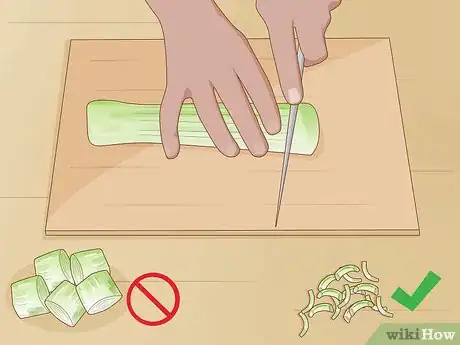
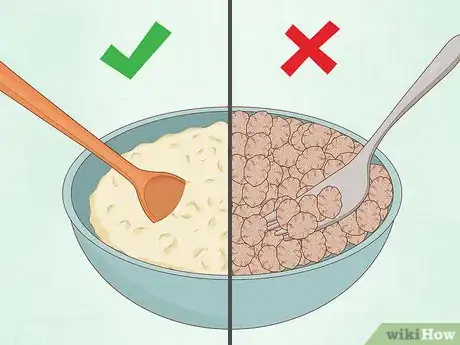

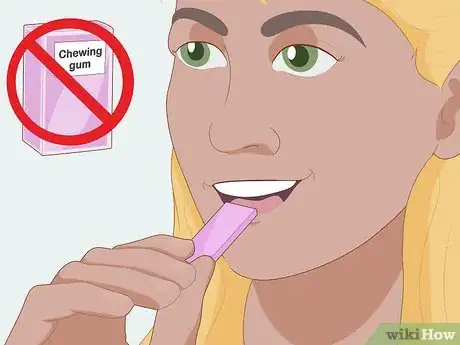
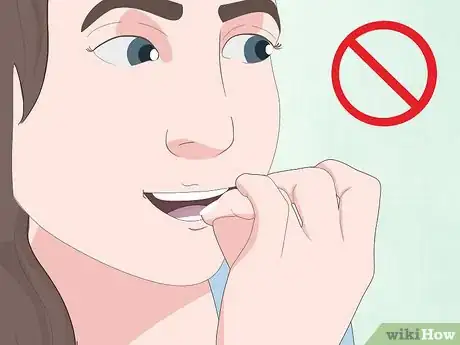
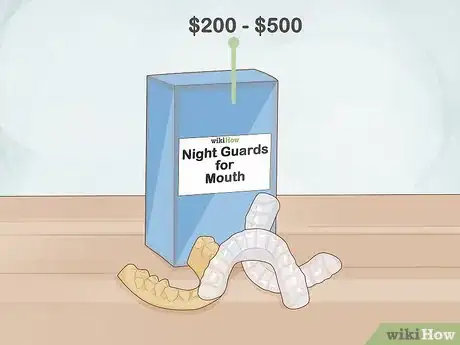
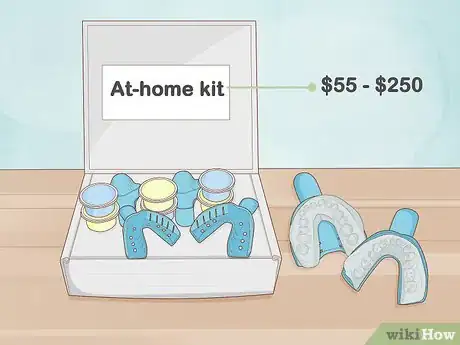
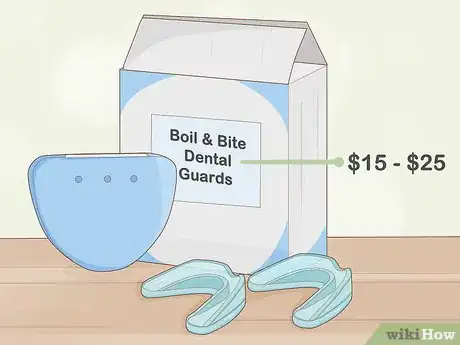
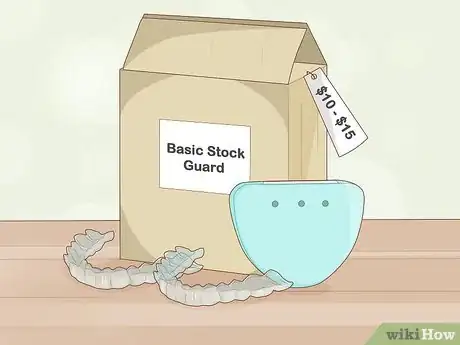
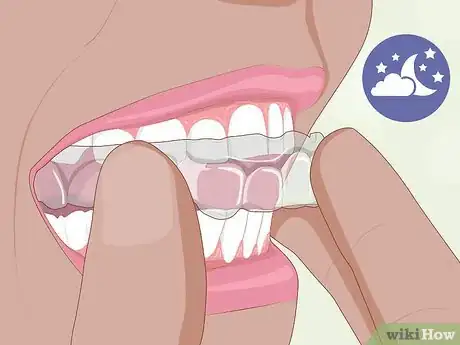
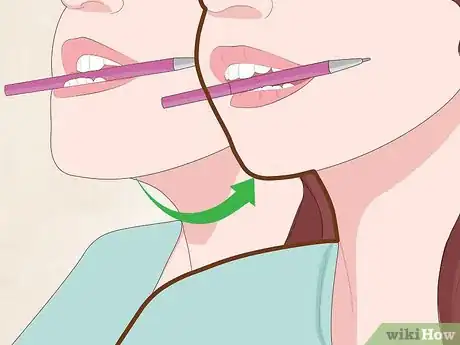
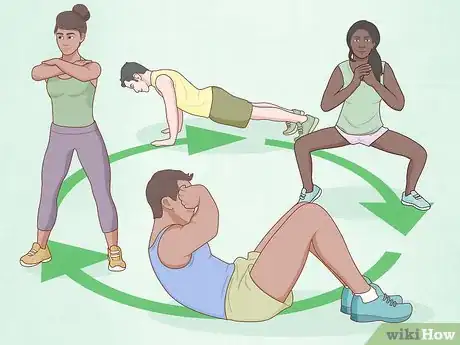


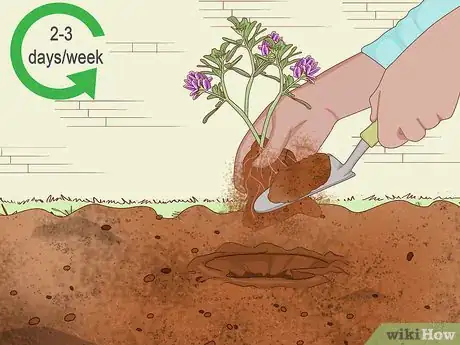


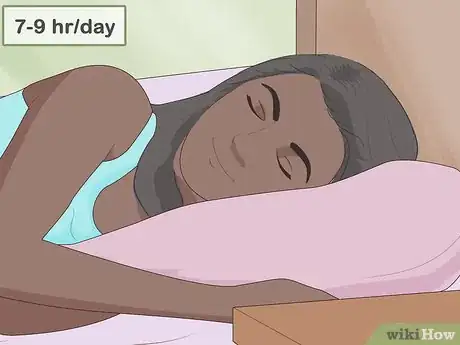
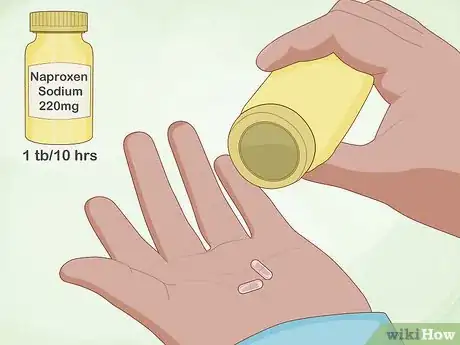
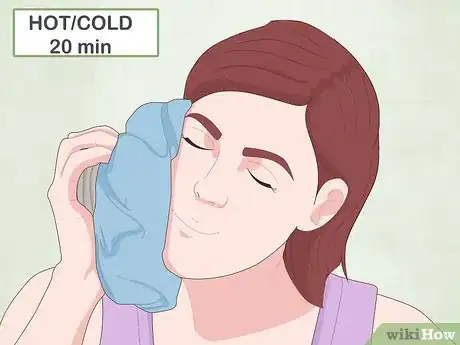

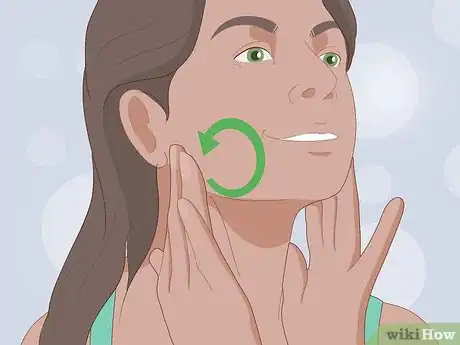
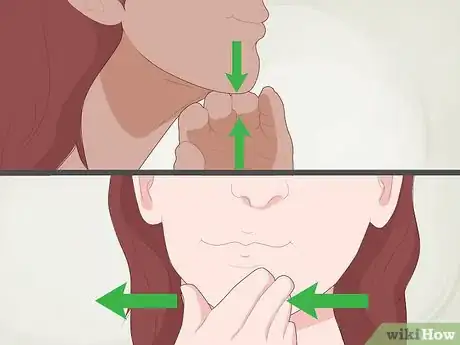













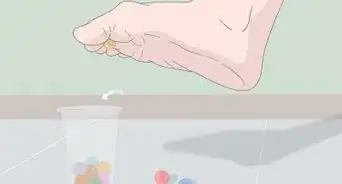













































Medical Disclaimer
The content of this article is not intended to be a substitute for professional medical advice, examination, diagnosis, or treatment. You should always contact your doctor or other qualified healthcare professional before starting, changing, or stopping any kind of health treatment.
Read More...